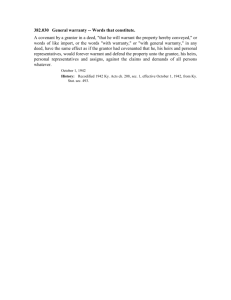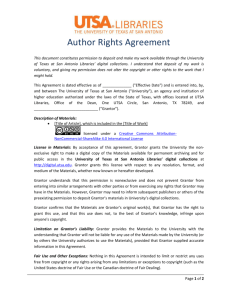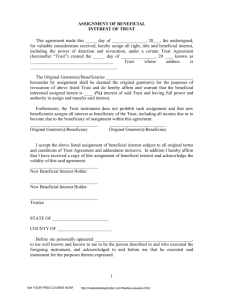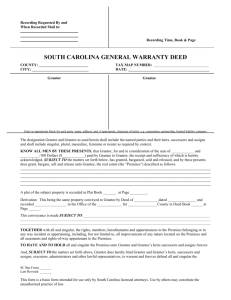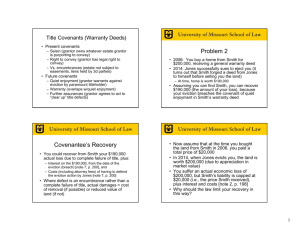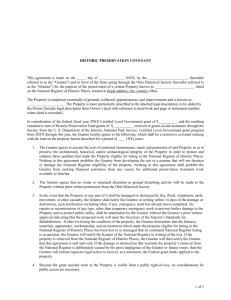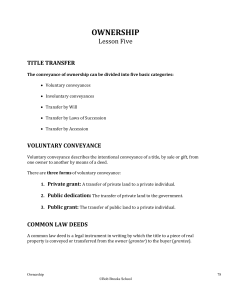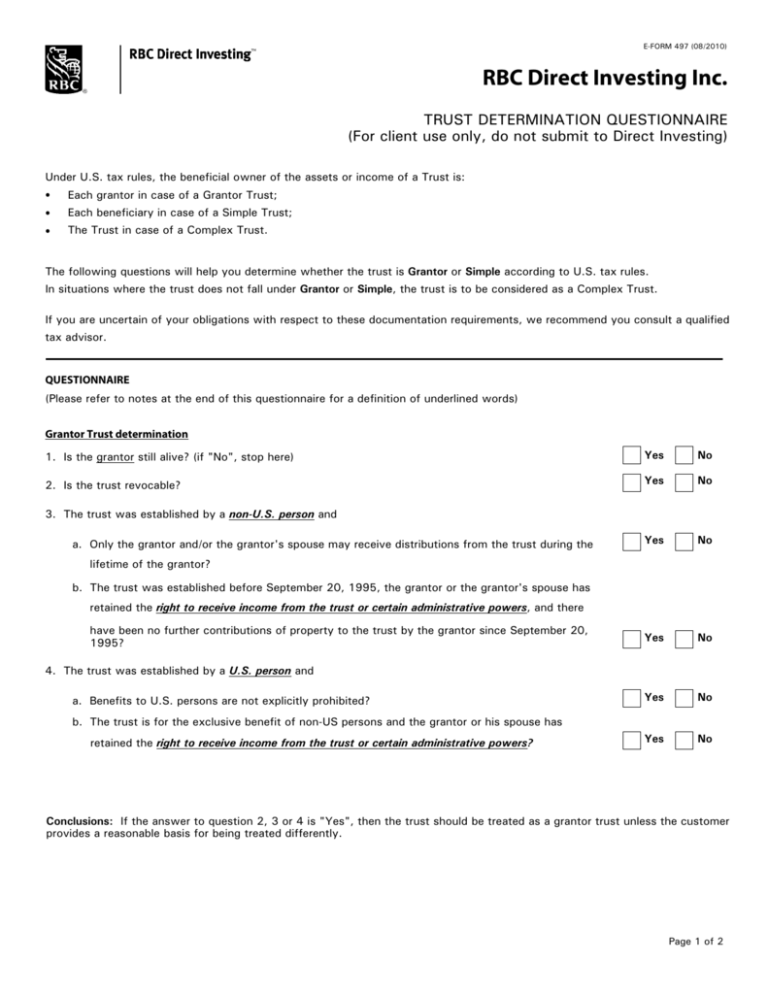
E-FORM 497 (08/2010)
RBC Direct Investing Inc.
TRUST DETERMINATION QUESTIONNAIRE
(For client use only, do not submit to Direct Investing)
Under U.S. tax rules, the beneficial owner of the assets or income of a Trust is:
•
•
•
Each grantor in case of a Grantor Trust;
Each beneficiary in case of a Simple Trust;
The Trust in case of a Complex Trust.
The following questions will help you determine whether the trust is Grantor or Simple according to U.S. tax rules.
In situations where the trust does not fall under Grantor or Simple, the trust is to be considered as a Complex Trust.
If you are uncertain of your obligations with respect to these documentation requirements, we recommend you consult a qualified
tax advisor.
QUESTIONNAIRE
(Please refer to notes at the end of this questionnaire for a definition of underlined words)
Grantor Trust determination
1. Is the grantor still alive? (if "No", stop here)
Yes
No
2. Is the trust revocable?
Yes
No
Yes
No
Yes
No
Yes
No
Yes
No
3. The trust was established by a non-U.S. person and
a. Only the grantor and/or the grantor's spouse may receive distributions from the trust during the
lifetime of the grantor?
b. The trust was established before September 20, 1995, the grantor or the grantor's spouse has
retained the right to receive income from the trust or certain administrative powers, and there
have been no further contributions of property to the trust by the grantor since September 20,
1995?
4. The trust was established by a U.S. person and
a. Benefits to U.S. persons are not explicitly prohibited?
b. The trust is for the exclusive benefit of non-US persons and the grantor or his spouse has
retained the right to receive income from the trust or certain administrative powers?
Conclusions: If the answer to question 2, 3 or 4 is "Yes", then the trust should be treated as a grantor trust unless the customer
provides a reasonable basis for being treated differently.
Page 1 of 2
E-FORM 497 (08/2010)
Simple Trust Determination
1. Does the governing instrument of the trust require that the trust income be distributed currently (or at
Yes
No
Yes
No
least annually) to the beneficiaries?
2. Does the governing instrument of the trust allow that any amounts are paid, permanently set aside,
or used for charitable purposes?
Conclusions : If the answer is "Yes" to the first question and "No" to the second question, then the trust should be treated as simple trust unless
the customer provides a reasonable basis for being treated differently.
Complex Trust Determination
A complex trust is a trust that is not a grantor or simple trust. This would include a testamentary or inter vivos trust (other than a
grantor trust) for which all the income of the trust is not required to be distributed (or is not paid or payable) on an annual basis.
Notes
Grantor: The term "grantor" generally means the person who contributed property to the trust either upon creation of the trust
or at a later time. This person may also be the settlor or creator of the trust, but not necessarily. There can be more than one
grantor of a trust. If so, then respond to the question for each grantor. For example, where a trust is established for a family,
both spouses may contribute property together to the trust, in which case each of them is a grantor.
Right to receive income from the trust or certain administrative powers:
Examples of such rights include:
•
•
A reversionary trust interest that exceeds 5% of the value of the trust assets at inception.
The right of the grantor, or of another person under the grantor’s control, to decide the beneficial enjoyment of the trust
assets or trust income.
•
•
The right to remove trustees and replace them with the grantor.
The power by the grantor, or another person under the grantor’s control, to deal with trust assets for less than full
consideration (e.g., borrow from the trust with less than adequate interest or security).
•
•
The power by the grantor to reacquire assets by substituting assets of equivalent value.
The right to have the trust income paid to, or accumulated for future distribution to, the grantor or the grantor’s spouse.
Non-U.S. or U.S. person: For this purpose, a U.S. person includes a U.S. citizen, a person who is a U.S. tax resident, and a
person who was not a U.S. person when the trust was created but who became a U.S. tax resident within five years of the
creation. A non-U.S. person is a person who is not a U.S. person per the definition above.
RBC Direct Investing Inc. and Royal Bank of Canada are separate corporate entities which are affiliated. RBC Direct Investing Inc. does not provide investment
advice or recommendations regarding the purchase or sale of any securities. Investors are responsible for their own investment decisions. RBC Direct Investing is a
business name used by RBC Direct Investing Inc. ™ Trademark of Royal Bank of Canada. ® Registered trademark of Royal Bank of Canada. RBC and Royal Bank are
registered trademarks of Royal Bank of Canada. Used under licence. © Royal Bank of Canada 2010. All rights reserved.
Page 2 of 2

